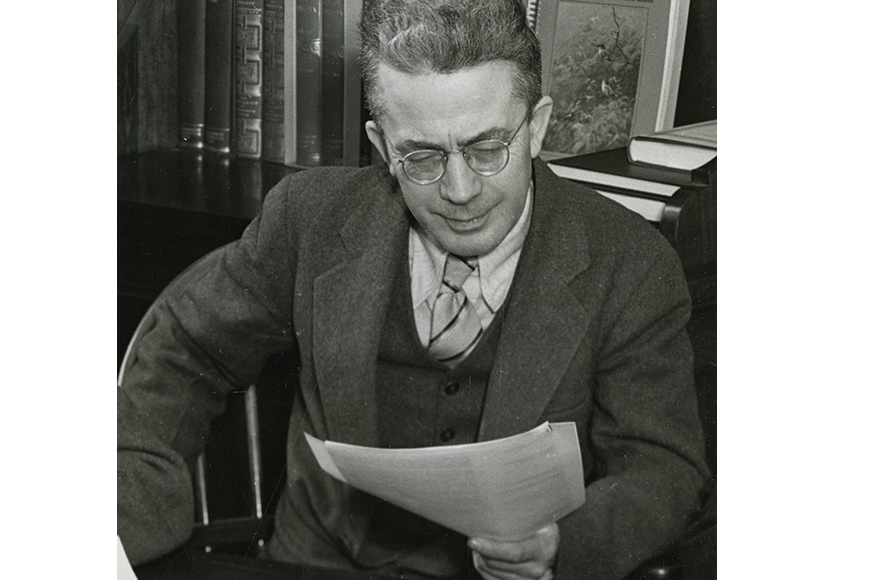A Professor of "Singular Strength and Integrity"
When Professor Martin Bronn Ruud passed away in 1941, a young professor at the University of Michigan sent a mournful letter to Minnesota English chair Joseph Warren Beach. "Professor Ruud had a much greater influence on graduate students and young scholars than the number of his published works might indicate," he wrote. His words were truer then he knew: graduate students 75 years later are still being supported and inspired by Ruud.
Materials donated by Ruud
proved essential as the
University in 1947 developed
a program in Scandinavian
studies, which state legislators
had long called for as part of
the University's responsibility
as a land-grant institution.
Ruud was hired as a lecturer by the Department of Rhetoric and Public Speaking in the late teens and was promoted to assistant professor by the time that department was absorbed by English in 1921. A scholar of medieval English literature and language, he published Thomas Chaucer (University of Minnesota, 1926) and was by Beach's account "almost amazingly" learned. "His interests were . . . austere," described James Gray in The University of Minnesota, 1851-1951, "and the most nearly frivolous thing he ever did was to evolve a theory which was later generally accepted of how the pronoun she had come into the language."
But his knowledge ranged beyond that field, with a special interest in Scandinavian culture. A translator, he also wrote essays for the journal Scandinavian Studies on Knut Hamsun and Ibsen and published two longer works on the history of Shakespeare in Norway and Denmark. With Theodore C. Blegen, he published the important collection Norwegian Emigrant Songs and Ballads. A supporter of the student Ibsen Club, he was responsible, Gray wrote, "for Minnesota's coming into possession of extensive collections of books in the field" of Scandinavian studies. These materials proved essential as the University in 1947 developed a program in Scandinavian studies, which state legislators had long called for as part of the University's responsibility as a land-grant institution.
Grieving colleagues create a fellowship in his name
According to archived department papers, Professor Ruud was humble and gracious in the classroom. A 1918 report concludes: "In manner Mr. Ruud is pleasant, subdued, and nervously hesitant. He is the typical university philologist in mind and manner."
By the time he died, 20 years later, Ruud had made himself indispensable. The Department of English sent a letter to his widow praising him for his "searching and disciplined mind, generous and loyal heart, and character of singular strength and integrity." The letter ends: "We would not leave unspoken the sense of loss we have for a colleague so much loved, so deeply respected and admired."
The Martin B. Ruud Fund emerged from the collective gifts of colleagues and former students. At first a sum of $68.50 gathered, which the department used to augment Ruud's book collection, which he bequeathed to the University. Eventually, enthusiasm built to establish a fellowship and scholarship fund.
Now generations of students have learned Ruud’s name. "Thanks to the generous Martin B. Ruud fellowship," notes current student Amanda Niedfeldt, "I was able to focus the first year of my graduate career on coursework and scholarship. The fellowship enabled me to successfully acclimate myself before I begin instructing and leading others in the discipline of English.”



